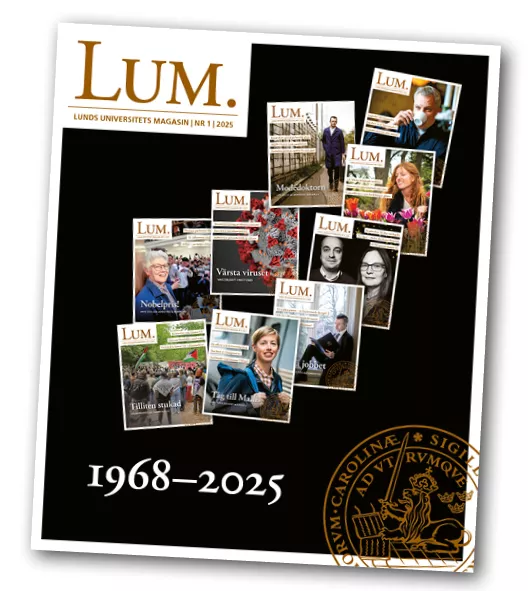Inside the historic Old Bishop’s House, final preparations are underway for the day’s meeting of the Cultural Council. The Council gathers once a semester and this afternoon’s meeting is expected to last four hours. It will then be followed by dinner in the adjoining hall. Jason Diakité, or Timbuktu as most people know him, arrives half an hour early and takes a seat in the library on the second floor. He has flown all the way to Sweden from Hong Kong, where he lives with his family, to attend.
“So far, I’ve managed to plan trips so that I can attend the meetings. Also, my mum lives in Lund and my dad and sister in Malmö, so I have big and important reasons to come,” he says.
Understand – and contribute
The external Cultural Council was started in 2015. Its members are active in a wide range of fields and act, among other things, as strategic advisors for LU’s collaborations in the field of culture, as well as on how to make the University’s cultural significance more visible. The meeting about to start is Jason Diakité’s second; he joined as a new member this year. When the invitation came, he accepted without hesitation.
“I’m curious about new spaces. I don’t know much about the university I grew up alongside. I want to know about the University’s aims and what the University can do. I want to try to understand and I want to contribute, of course.”
He remembers the first meeting, which was held in the spring semester, as fun and rewarding.
“It was really interesting and I learned a lot. It was great to meet the other members, from museum directors and businesspeople to University old-timers, and to understand a bit more about the University’s inner workings. It’s like getting a glimpse under the bonnet, despite not being a mechanic. There are a lot of cogs, as I suspected, but I don’t quite understand what they do yet,” he says.
Artist, author and social activist
Since his breakthrough in the early 2000s, Jason Diakité has become one of the biggest names in Swedish hip hop, with mega-hits such as Alla vill till himmelen men ingen vill dö (Everyone wants to enter Heaven but no one wants to die), years of frequent touring and several major music awards under his belt. He has also been recognised for his social activism.
He attracted a lot of attention in 2013 when he received the 5i12 movement’s award for his efforts to counter xenophobia and racism and gave an emotional speech in the Swedish Parliament while holding up his passport. His book A Drop of Midnight, the story of a family’s roots stretching from slavery in the US to Sweden, was published in 2016. The book was later adapted into a play of the same name.
A feeling of distance
Last year, he was awarded an honorary doctorate by the Faculty of Humanities for his contribution to Swedish culture and public debate. Yet as a child, Jason Diakité had only vague ideas about what the University was and meant. He remembers Big Toddy Day, the medical students’ big celebration hosted by Medicinska Föreningen, when he and his friends fired dried peas at each other and threw eggs at the students. And yet there was always a feeling of distance.
“It’s almost like the neighbour you’ve lived next door to your whole life, but you’ve never really been inside their home,” he says and continues:
“That’s why it’s nice to get a glimpse inside the University later in life. Before the last meeting, I had never been inside Old Bishop’s House, despite having passed it thousands of times. That alone is pretty cool, to get to walk inside and see spaces that you’ve always wondered about.”
New perspectives
Outside Old Bishop’s House, the rain is pouring down intermittently on this October afternoon. Inside, hot tea and coffee await the members about to start their meeting. In addition to an update on what has happened since the last meeting, today’s agenda includes a discussion about how the University can take a more integrated approach to cultural activities. There will also be a presentation on Art Callab – Laboratory for Art by Fredrik Haller, senior lecturer at the Malmö Theatre Academy.
Jason Diakité believes and hopes that he can contribute new perspectives.
“I’m a lay person, a non-academic, non-tenured and non-normative in any sense. I come from a self-made grassroots culture and have a completely different perspective on things to wider society in general.”






